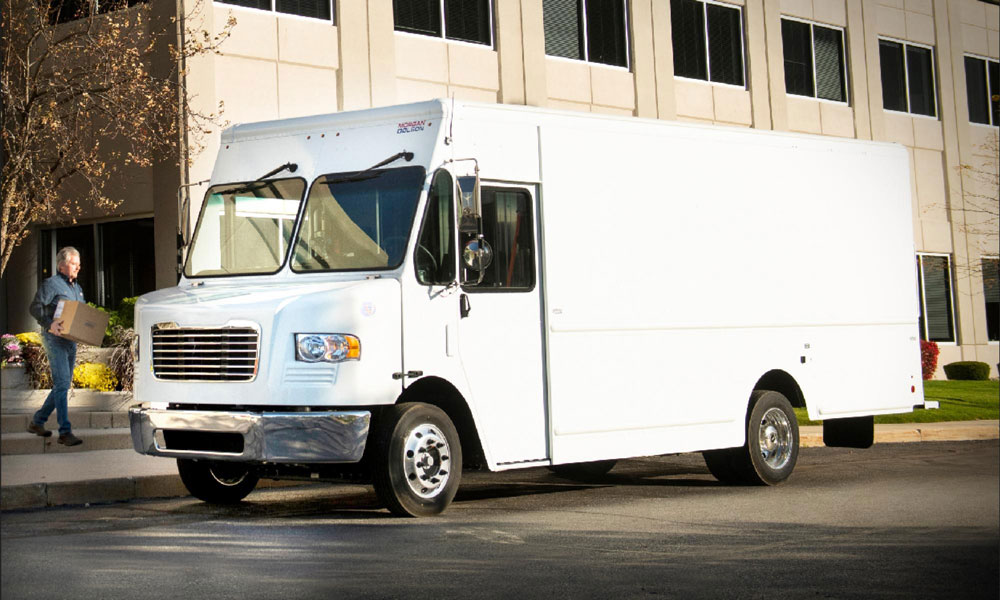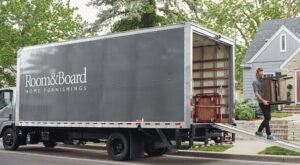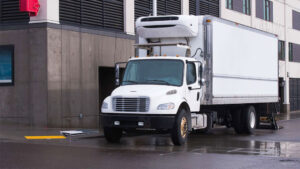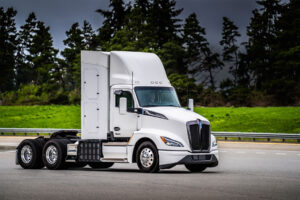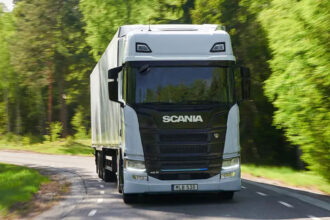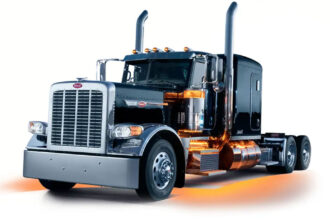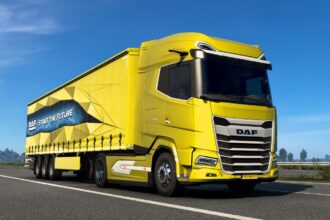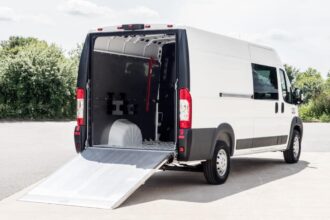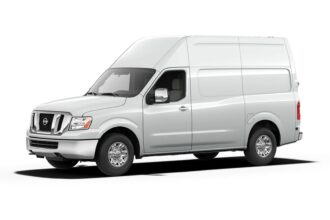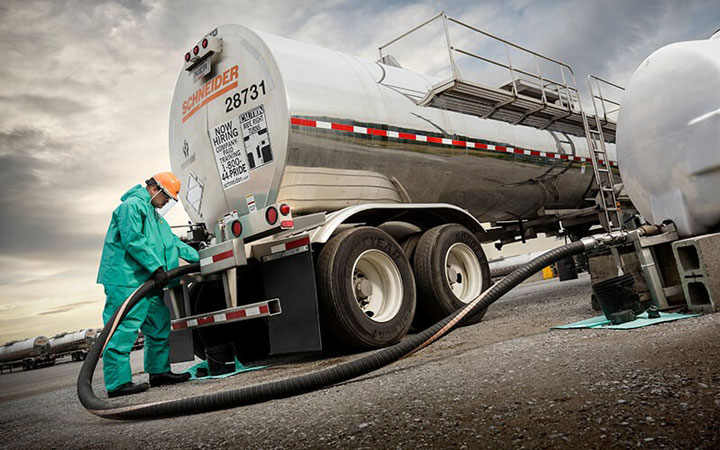Table of Contents
Introduction
Are you ready to step into the world of delivery business, much like the iconic UPS and FedEx trucks you see on the streets? These vehicles, known as step vans, are the often-overlooked champions of deliveries with multiple stops. Imagine the convenience of a low step-up doorway that allows you to hop in and out with ease, making them perfect for a range of industries, from package delivery to laundry services and even local farm deliveries.
But here’s the deal: running a delivery business, especially one with step vans, comes with a truckload of expenses. It’s not just about buying vehicles; you’ve got permits, tolls, fuel, payroll, maintenance, taxes, and insurance to handle. It’s a financial juggling act.
So, how do you navigate these financial hurdles and make your step van delivery service dreams a reality? Well, that’s where trucking business loans come into play. They provide the working capital you need to not only kickstart your venture but also keep it rolling, even during lean times.
This guide breaks it all down for you. From understanding the nuances of step vans to exploring the different business loans at your disposal, you’re here to find the right path to successfully launch or expand your step van delivery business. So, dive in and embark on the journey to your delivery business success.
Best Business Loans For Step Van Delivery Service
- Small Business Administration (SBA) Trucking Loans
- Equipment Financing For Transport Businesses
- Equipment Line of Credit
- Short-Term Trucking Business Loans
Overview of Best Business Loans For Step Van Delivery Service
How to Choose the Best Business Loans For Step Van Delivery Service
Pros & Cons of Best Business Loans For Step Van Delivery Service
What to Watch Out For
Pro Tips
1. Small Business Administration (SBA) Trucking Loans
SBA loans can be a game-changer for your trucking business. The government backs these loans, which means more financing opportunities for you, even if you don’t qualify for traditional business loans. They offer flexibility to meet various financial needs in the trucking industry.
- Offers government support, reducing lender risk for easier funding.
- Provides versatility, allowing use for various purposes like purchasing trucks, expanding, or covering expenses.
- Grants access to substantial loan amounts, ranging from thousands to millions.
- Tailors options for servicemembers and veterans with favorable terms and reduced fees.
- Imposes eligibility requirements, making meeting criteria necessary.
- Requires a time investment due to a lengthier application and approval process.
- May necessitate collateral, depending on the lender and loan amount.
SBA 7(a) Loans: This is one of the most popular SBA programs, allowing you to secure up to $5 million for various purposes, including buying equipment, real estate, or even acquiring other businesses.
SBA 504 Loans: If you want to finance heavy equipment, consider SBA 504 loans. They offer long-term fixed-rate financing of up to $5 million.
SBA Microloans: When your financing needs are smaller, with requirements of $50,000 or less, turn to the SBA Microloans program. The average loan size here is around $13,000 and can be used for machinery, working capital, or supplies.
Veterans Advantage Loans: Specifically designed for those who’ve served in the military, these loans provide the same favorable terms as 7(a) loans but with reduced guarantee fees, making them an attractive option if you’re a veteran.
>>>MORE: Is Step Van Good Business?
2. Equipment Financing For Transport Businesses
Equipment financing is a game-changer for your transport business. It’s the key to acquiring essential assets like commercial trucks and trailers without a hefty upfront cost. You have two flexible options to choose from based on your business needs.
- Offers Lower interest rates
- Gives Longer loan terms
- Needs No personal guarantee
- Requires No collateral
- Facilitates Asset Acquisition
- Provides Two Options
- Affords Affordable Monthly Payments
- Fosters Upgrade Potential
- May not be available for used equipment
- May require a down payment
- Entails Ownership Considerations
- Results in a Higher Total Cost
- Involves Lease Limitations
Equipment Loans: You make scheduled payments covering both the principal balance and interest. Once you’ve made all the payments, you become the outright owner of the equipment. It’s an excellent choice if you plan to keep and use the equipment for many years.
Equipment loans are designed to help your business finance equipment like step vans. They often come with lower interest rates and longer loan terms compared to other types of business loans.
Equipment loans are available in amounts up to $100,000. The loan terms range from 12 months to 60 months. Equipment loans are typically unsecured, but they may require a down payment.
Equipment Leases: Leasing means you’re essentially renting the equipment from the lender. You’ll make monthly payments to use the equipment. At the end of the lease term, you can return the equipment and opt for a newer model.
Some leases even offer the chance to purchase the equipment by paying the remaining balance. While leases usually come with lower monthly payments and the potential for no down payment, be aware that the total cost may be higher due to interest rates.
3. Equipment Line of Credit
Equipment loans are designed to help your business finance equipment like step vans. They often come with lower interest rates and longer loan terms compared to other types of business loans.
- Offers Flexibility: Borrow and repay as needed.
- Provides Convenience: Easy application and approval.
- Ensures Speed: Access funds within 24 hours.
- Grants Lower Interest Rates: Typically lower than term loans.
- Provides Longer Loan Terms: Extended repayment time.
- Requires Collateral: May need to offer equipment as collateral.
- May Incur High Fees: Annual, draw, and prepayment fees.
- May Encourage Overspending: Flexibility can lead to overspending.
- Equipment Line of Credit: It’s a loan for buying equipment, like a business line of credit but solely for equipment purchases.
- Revolving Nature: You can borrow up to a set limit as needed. You pay interest only on what you borrow and can repay anytime without penalties.
- Qualifications: Typically requires good credit, solid finances, and may need equipment as collateral.
- Interest Rates: Vary based on your credit and lender, but are usually lower than other business loans.
- Additional Fees: Watch out for fees like an annual fee, draw fee, and prepayment penalty. Compare fees from different lenders before deciding.
4. Short-Term Trucking Business Loans
Short-term trucking business loans offer quick access to funds, making them suitable for addressing urgent financial needs in your step van delivery service.
- Delivers Fast Funding
- Enhances Accessibility
- Facilitates Versatile Use
- Aligns with Short-Term Needs
- Involves Costly Financing
- Limits Major Purchases
- Demands ROI Assessment
- Carries Overextension Risk
- Loan Duration: Short-term trucking business loans have a repayment period that typically doesn’t exceed one year.
- Interest Rates: Interest rates on short-term loans tend to be higher compared to long-term financing options, which contributes to their overall cost.
- Usage Guidelines: Short-term loans are best suited for immediate needs, such as covering unexpected expenses or capitalizing on time-sensitive opportunities.
- Risk Mitigation: You should exercise caution and calculate the potential return on investment (ROI) before taking on a short-term loan to ensure it aligns with your business goals.
- Alternative Financing: If you’re seeking long-term investments, like purchasing trucks, you may want to explore other financing options with more favorable terms.
- Credit Score Impact: Managing short-term loans responsibly can positively impact your credit history, improving your eligibility for better financing options in the future.
Overview of Best Business Loans For Step Van Delivery Service
If you’re stepping into the world of step van delivery services, securing the right business loan is crucial. Step vans, renowned for their spacious cargo capacity, are ideal for transporting large items like furniture and electronics.
To finance your step van purchases, you have several tailored options to consider. Small Business Administration (SBA) loans offer accessibility with government backing, making them easier to qualify for than conventional bank loans. Equipment loans are designed explicitly for equipment acquisitions, such as step vans, offering favorable interest rates and extended terms.
Traditional term loans provide versatile funding for various purposes, including step van purchases, often with competitive interest rates. Lines of credit provide flexible financing solutions, suitable for businesses needing adaptable financial support. Your choice among these options should align with your specific circumstances and requirements in the step van delivery service industry.
How to Choose the Best Business Loans For Step Van Delivery Service
When choosing a business loan for a step van delivery service, you should consider the following factors:
- Loan amount: How much money do you need to borrow?
- Interest rate: How much will you pay in interest on the loan?
- Term: How long will you have to repay the loan?
- Fees: Are there any origination fees or other fees associated with the loan?
- Qualifications: Do you meet the lender’s qualifications for a loan?
Pros & Cons of Best Business Loans For Step Van Delivery Service
Pros
- Provides Access to Capital
- Offers Flexible Repayment Terms
- Offers Tax Benefits
Cons
- Involves Accruing Debt
- Entails Interest Payments
- Imposes Qualification Requirements
What to Watch Out For
When shopping for a business loan, it is important to be aware of:
Origination fees
Origination fees are typically one-time fees that lenders charge to process and fund a loan. Origination fees can range from 1% to 5% of the loan amount.
Prepayment penalties
Prepayment penalties are charged by some lenders if you repay your loan early. Prepayment penalties can range from 1% to 5% of the remaining loan balance.
Interest rates
Interest rates on business loans can vary widely. Compare offers from multiple lenders to get the best possible interest rate.
Terms
Business loan terms can also vary widely. Choose a loan term that is right for your business.
Pro Tips
- Shop around and compare offers from multiple lenders. This helps you ensure that you are getting the best possible deal.
- Consider your individual needs and circumstances when choosing a loan. How much money do you need to borrow? What interest rate can you afford? How long do you need to repay the loan?
- Be aware of the different types of business loans available and their pros and cons.
- Read the fine print carefully before signing a loan agreement. Make sure you understand all of the terms and conditions of the loan.
Recap
Starting a step van delivery service involves significant financial commitments, and securing the right business loan is essential. This comprehensive guide navigates the world of step van delivery businesses, shedding light on the financial intricacies involved. With step vans known for their cargo capacity, suitable loans are crucial. Options include Small Business Administration (SBA) loans, designed for accessibility with government backing, equipment loans offering favorable terms for equipment acquisitions, traditional term loans providing versatile funding, and lines of credit offering flexible financial support. Choosing the best loan depends on individual circumstances and requirements in the step van delivery service industry.
When selecting a business loan for step van delivery services, consider crucial factors such as loan amount, interest rates, loan terms, fees, and qualifications. Each loan type has its pros and cons, including access to capital, flexible repayment terms, and potential tax benefits as advantages, and accruing debt, interest payments, and qualification requirements as disadvantages. Being aware of origination fees, prepayment penalties, varying interest rates, and loan terms while thoroughly understanding the loan agreement’s fine print are essential steps to make an informed financial decision for your step van delivery service venture.


